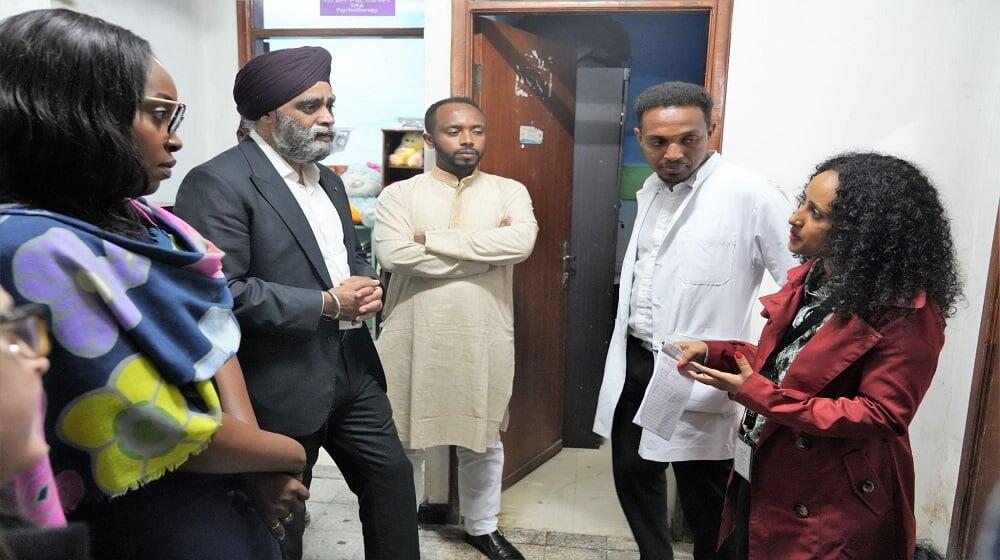The Canadian Minister of International Cooperation, H.E. Harjit Sajjan and Honorable Arielle Kayabaga, a member of parliament, visited the UNFPA supported One Stop Center at the Gandhi Memorial Hospital in Addis Ababa on May 21 as part of their official visit to Ethiopia.
The One-Stop Center at Gandhi Memorial Hospital is among the 16 centers UNFPA is supporting nationwide with funds from Canada. Up to five gender-based violence survivors from five sub-cities and surrounding areas in Addis Ababa visit the one-stop center at Gandhi Memorial Hospital daily. The center provides comprehensive services to survivors, including medical, legal, and psychosocial support.
During the visit, the Canadian delegation met with the hospital management and got briefed about the operations of the one-stop center. Appreciating the support, CEO of the Gandhi Memorial Hospital, Dr. Tariku Deresa, said ''we are working to lead by example, making the center and our hospital a center of excellence for women's and maternal health.”
''This should be strengthened since it will shorten legal proceedings and encourage more women to pursue justice'' said Minister Harjit Sajjan during the visit.
The One Stop Center was established in 2011. UNFPA has been supporting the center since 2018 with resources from the government of Canada. The one stop center works closely with the Addis Ababa Bureau of Women and Social Affairs, Sub-city Police departments, and referral hospitals for further services. Referrals are also made to safe houses for shelter and rehabilitation.
''We ensure survivors get support and services discreetly and without fear and shame. Anyone who walks into our doors receives the service free of charge'' says Alem, a nurse, and the center's coordinator.
More than 2,000 survivors have received comprehensive services with UNFPA support (1% of them boys & men). The center also managed to foster a strong relationship with legal aid providers (police, prosecutors, and courts), and social services so that survivors receive timely and coordinated support.
Coordinating with the Addis Ababa Bureau of Women and Social Affairs, UNFPA has also supported the center with various office furniture, materials, and medical equipment. Capacity development interventions including training for service providers on survivor-centered case management training were also provided.


